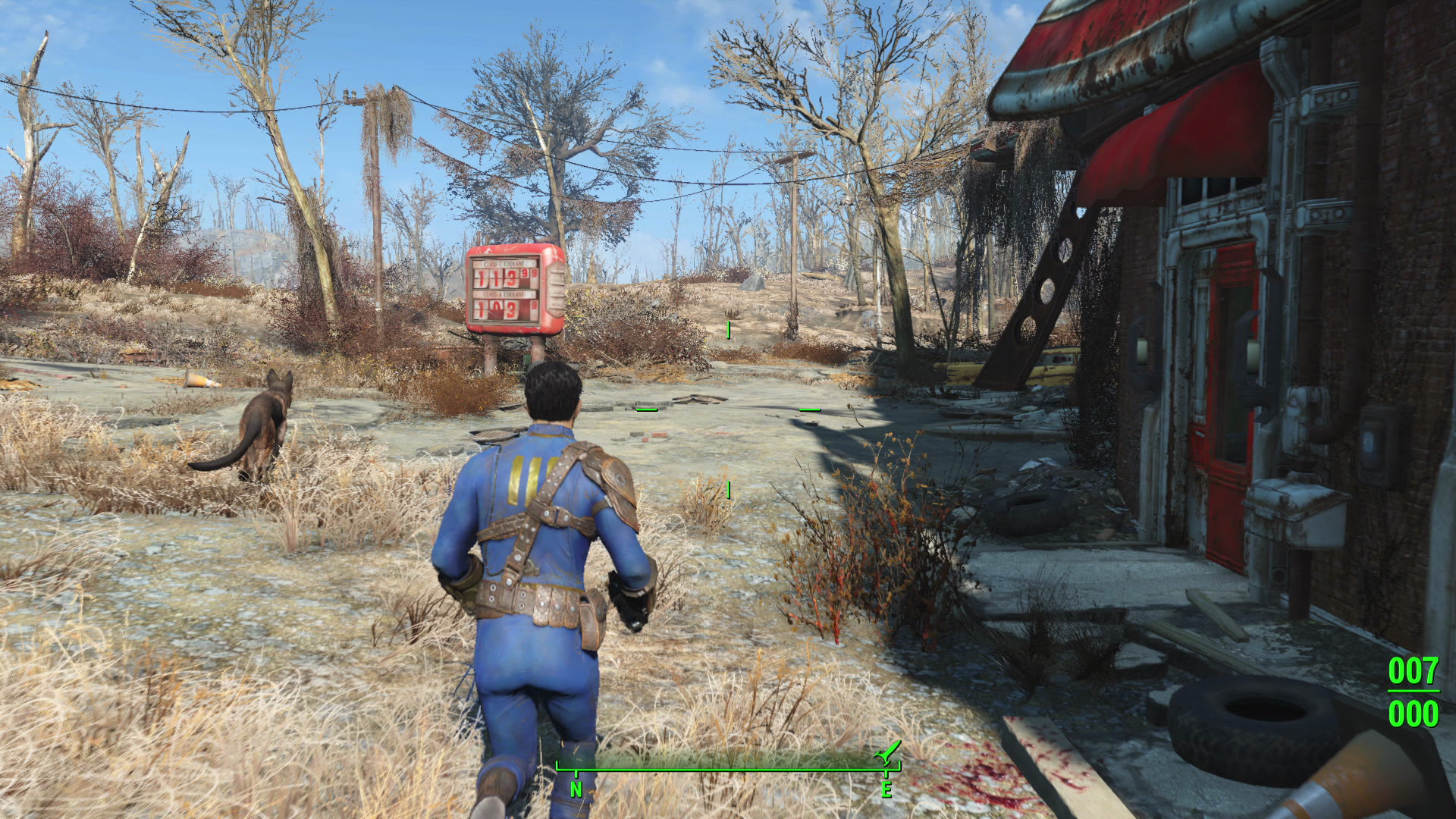Stop Playing Fallout 4 a Moment and Read About This Gamer Survey
Industry-funded poll shows gamers as likely voters, party members.


Thousands of Americans will be skipping the Republican presidential primary debate tonight, not because they don't care (not all of them), but because, dude, Fallout 4 was just released today! It's time for the holiday drop of major studio games, and there's a whole bunch of shooting (or light-sabering) to do.
For gamers willing to delay their journey through a post-apocalyptic Boston for a little bit, the Entertainment Software Association (ESA, the trade group for the gaming industry), has put together a survey of the political attitudes of gamers.
They're calling the survey a "first of its kind." This is technically true, but Reason was still a year ahead by including a question about gaming habits in a couple of mass political surveys and then teasing some results from the outcomes.
ESA surveyed more than 4,000 adults who play video games at least three to four hours per week and asked them questions about their political beliefs. The ESA's big talking point from the survey is that 80 percent of them say they plan to vote in the 2016 election, compared to 75 percent of the general American population.
Here's what they note as the outcomes of their short list of questions:
- 76 percent said they believe humans play a role in climate change;
- 67 percent said they support stronger investment in renewable energies such as solar and wind;
- 61 percent said they support cutting existing programs to help alleviate budget concerns;
- 41 percent reported being better off financially than they were eight years ago;
- 61 percent said there should be a more equitable distribution of wealth in the U.S.;
- 42 percent support government providing parents more educational choices by providing taxpayer-funded vouchers to help pay for private or religious schools; and,
- 40 percent said the military should be used "as often as is needed to promote U.S. policies," while another 40% said diplomatic solutions should be the aim of foreign policy.
Some of those outcomes would give readers the suspicion that gamers might be, in general, more liberal than the general population. That was actually Reason's findings in our polls last year. But when asked their political leanings for this survey, a plurality of the gamers (48 percent) described themselves as conservative. Only 38 percent described themselves as liberal, and 14 percent as other. When asked to identify their political parties, Democrats and Republicans were split evenly at 38 percent, with 24 percent identifying as independent.
So there's a good chunk of gamers who see themselves as conservatives, but not Republicans. What else is interesting about these numbers is that gamers actually appear to be more partisan than the general American public. Numbers earlier in the year from Gallup have 42 percent of Americans defining themselves as independent. Only 31 percent identify as Democrats and only 25 percent as Republicans. Based on ESA's polling, gamers are actually more likely to be a member of a political party than non-gamers.
Is there anything else interesting to tease from this survey? I wish it had delved in a little deeper on some of these issues—getting results that say they'd rather cut spending instead of raise taxes doesn't mean a whole lot when they're not asked what they'd cut. It is nevertheless useful to reinforce the idea that gamers are not part of some sort of separate, odd little subculture removed from the mainstream, in the event anybody out there still believes that's the case.
I hope ESA makes this kind of polling an annual event and maybe probes a little deeper. It's also helpful to actually compare gamers' answers to their questions to that of the general American population. If there is little differentiation, then that's certainly news, too, but as we discovered when we polled gamers, there are some areas (disinterest in government regulation) where gamers were truly distinct from non-gamers.
Read more about ESA's survey here.


Show Comments (35)